"The old world is dying away,and the new world struggles to come forth:now is the time of monsters."[attributed to Antonio Gramsci] {source}



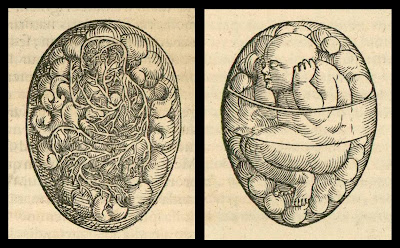


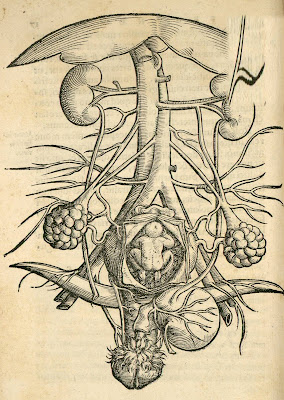
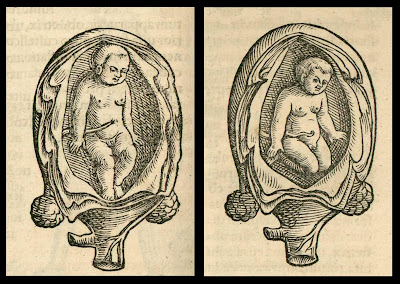




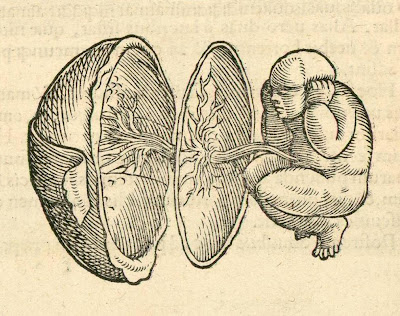
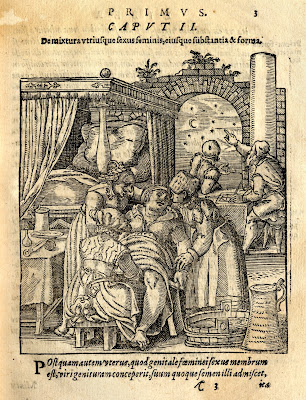


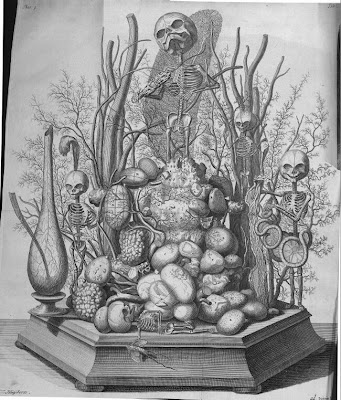




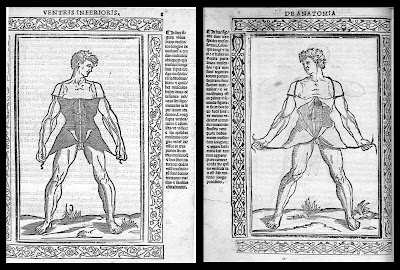
[click images for much enlarged versions : some of the baby-in-womb images have had the surrounding snips of text removed]
I had half-drafted a sarcastoamusing spiel involving placenta boom boxes, liver umbrellas and the vagaries of horizontal folk dancing but then I discovered the illustrations from one of the 3 books above are actually available elsewhere and I lost the urge to continue. So this becomes the half-hearted post instead.
'De Conceptu et Generatione Hominis' by Jacob Rueff (1554) has just been posted to the University of Strasbourg [link updated Feb. 2013]. I think it's the only complete copy online. 2 of the images above (2nd pregnant woman anatomy and midwife delivering baby) are from a 1580 edition (source). This is the (?)first textbook on midwifery. [see also: Lilly Library medical book exhibition/bibliography at Indiana University]
I want to know what is the device hanging off the belt at the back of the midwife? Does she play the bagpipes I wonder?
The first image in this post comes from another edition - among the Bibliothèque Interuniversitaire de Médecine {BIUM} exhibition site on Rueff (Rüff) [from 'Les Monstres'] .
Incidentally, the triumvirate of monsters seen above are symbolic illustrations of abnormalities that occurred in actual births in the 16th century. I believe these are the originals woodcuts - I've posted copied versions from later books before. 'De Conceptu..' has a number of illustrations of the more realistic birth defects too, if that is your thing.
The foetal skeleton illustrations come from unquestionably the most bizarre anatomy book of the renaissance/early modern era. 'Thesaurus Anatomicus' by Frederik Ruysch (1601) is available in its entirety also from BIUM (I, II). The book precipitously straddles both taste and genre as it presents the anatomical collection of Ruysch as a form of wunderkammer or cabinet of curiosity. There was a twisted mind behind some of the illustration arrangements. This is carnival medicine.
Finally, the last 3 dual images above are from Jacopo Berengario da Carpi's 'Isagogae Breves Perlucidae ac Uberrimae in Anatomiam Humani Corporis...' from 1523. I nabbed these images from BIUM which posted the whole book online in recent times. But all the illustrations - better quality too - are available at Historical Anatomies on the Web. So it goes..
No comments:
Post a Comment